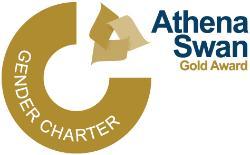SHW mentorship schemes
Professional services staff mentorship scheme
This mentorship scheme is open to all professional services staff within School of Health and Wellbeing.

Applications forms and privacy notices
What mentorship is for
The aim of the SHW mentorship scheme is to improve career development for staff within the institute. This developmental mentoring scheme aims for mentors to assist mentees to make the best decisions for their future and to aid the mentee’s growth and skills development.
Mentors are not "second" line managers, their job is not to direct the underlying approach of the mentee to their work, nor tell the mentee what to do in any particular circumstance. Rather they should help the mentee to take stock of their current situation, consider solutions to any ongoing problems, think about their career goals, and discuss how the mentee will themselves manage and achieve these goals.
Every mentor-mentee relationship will be different. Some mentees will seek assistance managing their current role, others will want guidance on planning their careers, others on how best to juggle responsibilities at work and home.
We recommend that mentors and mentees agree at their first meeting on a "mentoring contract" so that both parties know what to expect. A good place to start is to follow the GROW model of mentoring (Goals – Reality – Obstacles – Options – Way Forward). The university also has some very helpful advice on getting the best out of mentorship for both the mentor and mentee.
Mentors can only offer their advice. They will not always have the knowledge or experience to cover all areas. In some circumstances, advice from other staff and/or human resources may be sought by the mentee. Pease note, all communication between mentor and mentee should be kept confidential unless otherwise agreed.
Mentors do have a responsibility to make themselves aware of training opportunities, career development schemes, and support networks offered by the university (please see SHW Athena SWAN page for links). Where appropriate they should encourage their mentees to consider these opportunities and others available beyond the university.
We hope that both mentees and mentors enrolled in the School of Health and Wellbeing Mentorship Scheme find mentorship to be a positive experience. A successful mentoring relationship is likely to need commitment from both individuals – what you get out of mentoring will be dependent on what you put in.
If you feel your matched mentee/mentor is not an appropriate match for you, please email Anne Martin (Anne.Martin@glasgow.ac.uk) to be re-matched.
Key mentorship guidelines: mentee responsibilities
Agree with your mentor on a “mentorship contract” at the first meeting
- How often you will meet/communicate
- What you want to get out of the mentorship relationship
- What you will do if the mentorship relationship is not working or not helpful to you
- That all communications will be kept confidential unless otherwise agreed
Meetings should be initiated by the mentee
- We recommend that you have at least two meetings per year
- Ideally give your mentor a few weeks notice of when you’d like to have a meeting and agree on a time/place that is convenient for both of you
- You don’t have to wait for an important decision to have a meeting, rather regular meetings are likely to be more helpful
Meeting content should be mentee driven
- Mentors are there to provide advice, not tell you what to do
- Before the meeting, spend some quality time thinking about what you want to get out of your meeting – make a list of objectives and goals for each meeting
- After the meeting, take some time to reflect on what you discussed, write down any plans you made with a time scale for achieving them and any new questions raised in the meeting
Key mentorship guidelines: mentor responsibilities
- Your goal is to help the mentee explore their own options and hurdles rather than solve any problems for them
- Encourage the mentee to keep a log of mentorship meetings and follow up on any agreed actions in the agreed timescale
Training
University of Glasgow's Employee and Organisational Development currently runs an "Introduction to mentoring" half-day course. Details are available on the UofG Organisational Development (EOD) website.
This course is suitable both for potential mentors AND those interested in being mentored.
SHW also arranges occasional in-house versions of the EOD training. Details are published in our monthly newsletter HAWKEYE.


